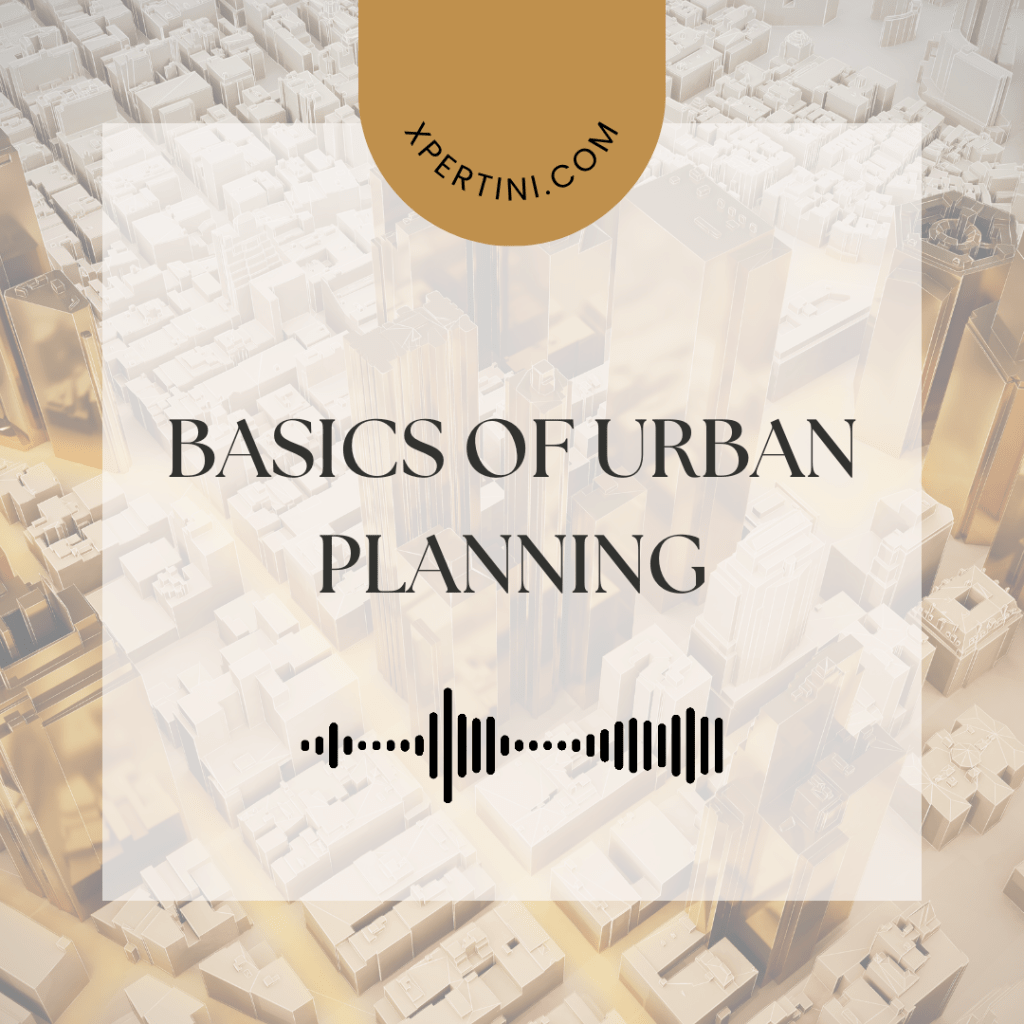Basics of Urban Planning
Course Summary
The “Basics of Urban Planning” course explores the principles, evolution, and challenges within this influential field. This course unfolds as a comprehensive guide, offering a current and nuanced understanding of urban planning’s critical role in shaping societies.
In the present tense, the course provides a strategic overview of urban planning, emphasizing the importance of sustainable development in modern societies. Learners delve into the historical perspective, witnessing the evolution of urban planning and understanding key milestones that have shaped urban development over time. The course navigates through the complexities of stakeholders involved in urban planning, elucidating the collaborative nature of decision-making processes.
Engaging in spatial analysis and land use planning techniques, participants gain proficiency in interpreting geographic information systems (GIS) data—a fundamental skill in contemporary urban planning. The exploration extends to infrastructure and urban development, emphasizing the impact of growth on infrastructure and the imperative of sustainable planning solutions.
Addressing the challenges confronting modern-day cities becomes a focal point, as learners analyze and strategize mitigation approaches. The course takes a bold step into urban planning and environmental sustainability, shedding light on eco-friendly urban development principles and showcasing case studies of environmentally sustainable urban projects.
The human-centric dimension unfolds as the course explores community engagement in urban planning. Participants grasp the delicate relationship between communities and planning, acquiring strategies for fostering successful community engagement. Urban design principles, from aesthetics to case studies of successful designs, punctuate the course, emphasizing the balance between visual appeal and functionality.
As the course concludes, learners are equipped to explore diverse career paths in urban planning, armed with insights into professional development and networking strategies. This course serves as a beacon, illuminating the path toward a profound understanding of urban planning’s multifaceted dynamics and its pivotal role in shaping the future of our evolving cities.
Course Overview
The “Basics of Urban Planning” course provides a foundational understanding of the field of urban planning. Urban planning plays a pivotal role in shaping the development and sustainability of modern societies. Whether you are considering a career in urban planning or seeking to broaden your knowledge, this course equips you with essential insights into the historical evolution, key principles, and contemporary challenges of urban planning.
Course Objectives
- Understand the fundamental concepts and principles of urban planning.
- Recognize the importance of urban planning in shaping modern societies.
- Explore the historical evolution of urban planning and its key milestones.
- Identify the various stakeholders involved in the urban planning process.
- Examine the decision-making processes within urban planning.
- Gain proficiency in spatial analysis techniques and land use planning.
- Evaluate the impact of urban growth on infrastructure and explore sustainable planning solutions.
- Address and mitigate challenges faced by modern-day cities through effective urban planning strategies.
- Understand the relationship between urban planning and environmental sustainability.
- Develop strategies for successful community engagement in urban planning.
- Explore urban design principles, including aesthetics and successful case studies.
- Investigate diverse career paths in urban planning and implement professional development strategies.
Course Outcomes
- Define key concepts and principles in urban planning.
- Analyze the historical evolution and milestones of urban planning.
- Identify and assess the roles of stakeholders in the urban planning process.
- Demonstrate proficiency in spatial analysis and land use planning techniques.
- Evaluate the impact of urban growth on infrastructure and propose sustainable solutions.
- Mitigate challenges faced by modern-day cities through effective urban planning strategies.
- Understand the relationship between urban planning and environmental sustainability.
- Implement strategies for successful community engagement in urban planning.
- Apply urban design principles, including aesthetics, in planning processes.
- Explore diverse career paths in urban planning and develop professional networking strategies.
Course Audience
- Individuals aspiring to pursue a career in urban planning.
- Professionals seeking to enhance their knowledge of urban planning principles.
- Students and scholars interested in urban development and sustainability.

